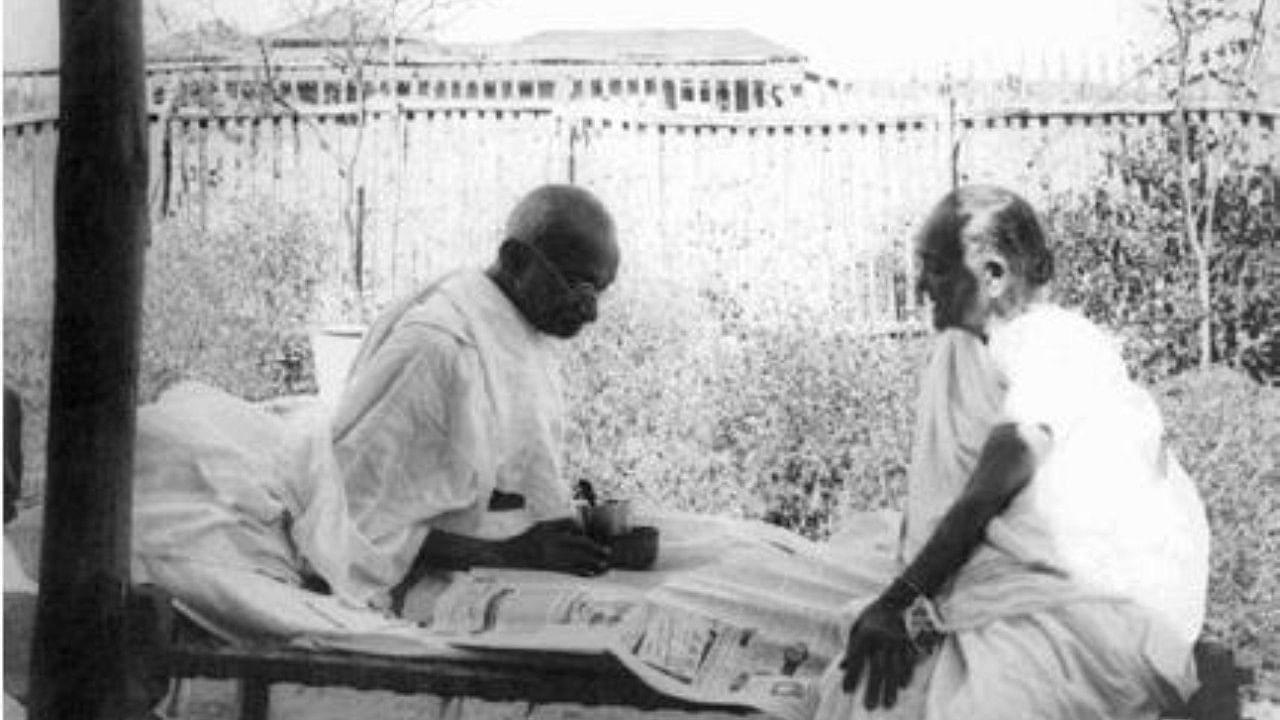

A damaged diary found from Indore’s Kasturba Ashram will soon be available to general public under the title of ‘The Lost Diary of Kastur, My Ba’.
The 135-page tome is the diary written by Kasturba Gandhi, full of jottings dated from January to September 1933. This raggedy chronicle, found by the staff of Jalgaon-based Gandhi Research Foundation, was almost forgotten, in deep neglect, just like Kasturba.
All her life, Kasturba was considered uneducated. The journal is proof that Kasturba Gandhi was literate, and that she was a person on her own, and not just the wife of Mahatma Gandhi, Father of the Nation.)
The diary would now come in the form of a book 'The Lost Diary of Kastur, My Ba', brought out by HarperCollins India. The book is a reproduction of the diary—accompanied by a transcription of what she wrote in Gujarati—along with its English translation, done by her great-grandson Tushar Gandhi.
“All her life, and post her death, Kastur was always dismissed as being uneducated and unable to comprehend the written word. This book is testament to Kastur Gandhi (nee Kapadia), dispelling the notion in the form of a well-articulated daily diary. Most of her writing is from the time she was a Satyagrahi, imprisoned by the colonial government for her individual acts of defiance, showing us her world not only as Gandhi’s shadow, but her own person, in her own words,” says Tushar Gandhi, who is also a peace activist, from Mumbai.
“Kasturba Gandhi has always been known as the Mahatma’s wife, spouse to a man who towered over contemporary India’s history. Though narratives about Mahatma Gandhi have spoken of her, we have never before heard her speak, in her own voice. This book is perhaps the only such opportunity we will have, given that it is based on a diary she wrote, possibly the only one she ever did. Lost for years, it was serendipitously discovered by her great-grandson, Tushar Gandhi,” said Swati Chopra, Executive Editor at HarperCollins India.
The book encapsulates the diary pages, which were written in her own hand, Gujarati text in printed form and English translation and contextualisation of her words from that time.
The book also includes rare photos of Kasturba and Mahatma Gandhi.
Initially when Tushar Gandhi spoke about the diary to family members, they refused to believe in its existence. “She was illiterate. She could not write,” was what he mostly heard. As he read Kasturba’s diary, this assumption was dispelled. It provided a glimpse into who she was—an individual, a companion and a satyagrahi in her own right.
In ‘The Lost Diary of Kastur, My Ba’, the reader gets to hear from Kasturba in her own words. Through day-to-day activities as noted down by her, it provides a peek into what it was like to be married to the ‘Mahatma’. She was a woman who was witnessing history being made; not just observing and understanding the process, but participating in it, too.
It also tells of her two instances of imprisonments that year, not because she was Bapu’s spouse, but because she practised satyagraha herself. Nearly a century after her death, this book finally presents Kasturba as a person of importance on her own, separate from her identity as the wife of Mahatma Gandhi.
Tushar Gandhi is the great-grandson of Kasturba and Mohandas Gandhi. Mahatma’s second son Manilal and daughter-in-law Sushila were Tushar’s grandparents. Tushar Gandhi is the founder-president of the Mahatma Gandhi Foundation, president of the Lok Seva Trust and director of Gandhi Research Foundation which discovered the diary at Indore.
Tushar’s first book, ‘Let’s Kill Gandhi!’ was published in 2007, with a revised edition in 2021.